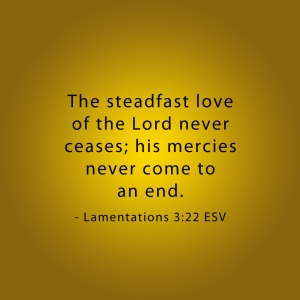Since month of October, I have been doing a preaching series on The Life of an Overcomer. However, due to the disaster caused by Yolanda in the Philippines, I decided to pause for a while, and share instead a message related to Facing the Strongest Storm in Your Life. I found my Facebook timeline very helpful, and also the life of both Joseph and Job very instructive.
My Facebook Timeline
Since November 9, I monitored the impact of super typhoon Yolanda in our country. I think many are also doing the same thing. The first video I saw is from ABS CBN.
And then on November 11, I read the news from Rappler, which reported that 10,000 feared dead only in Leyte. This is according to Tacloban administrator, Tecson Lim (http://www.rappler.com/nation/43347-yolanda-death-toll-nov-10-am). Remember that in this estimate of casualties, other five affected provinces are not included.
The Philippine Red Cross’ estimate is lower. It said that “1,200 people were believed to have died in just two provinces – Eastern Samar and Leyte.”
Compared to Lim and PRC’s estimate, the official report of number of casualties from the National Disaster Risk Reduction and Management Council (NDRRMC) is far lower. As of November 10, 6 AM, at least 151 dead people have been reported.
And concerning destruction of houses and sructures, Chief Supt. Elmer Soria informed the reporters that it was about 70 to 80 percent.
On the same day, the Manila Times compared Yolanda to the Indian Ocean Tsunami (http://manilatimes.net/it-was-like-the-indian-ocean-tsunami/51831/) “that hit Indonesia on December 26, 2004, killing more than 230,000 people in 14 countries.”
And then it was followed by 31 pictures from BuzzFeed that showed the extent of the devastation (http://www.buzzfeed.com/rachelzarrell/27-devastating-images-from-typhoon-haiyans-destruction). Mail Online shared almost similar pictures with additional videos (http://www.dailymail.co.uk/news/article-2496954/Starvation-fear-land-laid-waste-200mph-typhoon-killed-10-000-Dazed-survivors-scour-streets-food-mobs-attack-aid-trucks-Philippines.html). The images I saw are so terrible that made me shed tears for several times.
It was in Mail Online that I first read that “up to 4.3 million people have been affected” by Yolanda. It also reported that the Philippine government was thinking of declaring a “martial law to combat looting.”
Also on the same day, I saw in my Facebook News Feed a picture, which claimed to have come from the CNN. The picture extols the “resiliency” of the Filipino people and considered it a privilege to have suffered the fury of “the strongest typhoon ever recorded.” Many of my friends shared it.
Personally, reading such kind of message, I had this uneasy feeling within me. In bearing the pain inflicted by a disaster like Yolanda, I consider it inappropriate to boast of the alleged “national resiliency”. Instead, I think it is the right time for us, the Filipino people to humble ourselves before our God.
And then I found out later that the circulating CNN picture was not actually from CNN, but a comment on an article (http://kickerdaily.com/false-cnn-statement-goes-viral/).
And then I continued watching videos:
On November 12, I watched three additional videos:
http://www.abs-cbnnews.com/video/nation/regions/11/11/13/watch-first-look-devastation-tanauan-leyte
And saw three pictures that made me speechless:
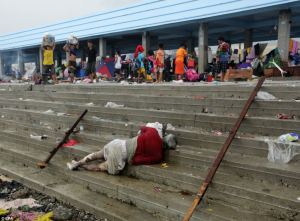
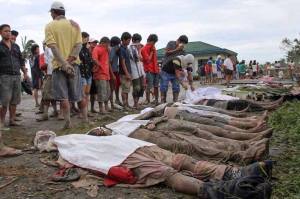
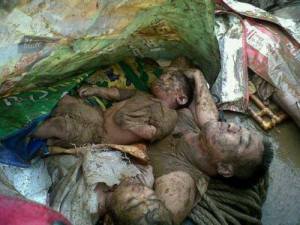 Also on November 12, I read a survivor’s story about Lieutenant Colonel Fermin Carangan (http://cbholganzablog.wordpress.com/2013/11/11/a-survivors-story/). He shared how he lost his junior officers, how he saved a 7 year old boy, and how that boy was used by God for him to keep fighting to survive while floating and being tormented by waves of the sea for 6 hours.
Also on November 12, I read a survivor’s story about Lieutenant Colonel Fermin Carangan (http://cbholganzablog.wordpress.com/2013/11/11/a-survivors-story/). He shared how he lost his junior officers, how he saved a 7 year old boy, and how that boy was used by God for him to keep fighting to survive while floating and being tormented by waves of the sea for 6 hours.
After reading Colonel Carangan’s story, I decided to change my Facebook cover photo into a text taken from Lamentations 3:22. The verse says, “The steadfast love of the Lord never ceases; his mercies never come to an end.” Prophet Jeremiah said this during the time when the city of Jerusalem was in great desolation.
And then on November 13, I saw pictures from Gizmodo that showed the before and after pictures of the Philippine typhoon (http://sploid.gizmodo.com/before-and-after-pictures-of-the-philippines-typhoon-ar-1463416196/@caseychan). The comparison is unbelievable. The destruction is so great and you will be tempted to think that maybe this is not for real.
And before November 13 ends, I read an article from The Society of Honor by Joe America (http://joeam.com/2013/10/21/the-philippines-the-most-dangerous-land-on-the-planet/). The article was written last October 21. It means that he wrote it prior to the coming of Yolanda. The writer said that the Philippines is the most dangerous land on planet earth when it comes to natural disasters. He is calling for a long-term pre-planning in the fashion of fighting natural disaster as a battle.
And then when relief started to flow, on November 14, I posted my Facebook wall the donation from South Korea (http://www.koreaherald.com/view.php?ud=20131113000936). South Korea gave/pledges to give the following support for Yolanda’s victims:
- Government of South Korea – $5 million + 20 medical professionals, 14 rescue workers, 4 officials from the state aid agency, and 2 diplomats
- Seoul City – $200,000 + a nationwide campaign to collect 10 billion won ($9.3 million
- Child Fund Korea – 100 million won + a fund-raising campaign
- Samsung – $1 million + 20 volunteers
- Hyundai – $ 30 Million
- Kia – $ 30 million
- LG – free emergency repair services
- Hite-Jinro – 100,000 bottles of mineral water
- And additional donations/relief services from companies like SK, GS and Hanwa
Also on November 14, I was shocked reading this statement from Secretary Mar Roxas: “Tacloban police station has manpower of 293. On Day 1, that is Saturday, only 20 showed up. They’re all victims. They’re swept away. They’re victims themselves. Their houses were swept away. They’re looking for their loved ones…” (http://www.gov.ph/2013/11/14/transcript-of-the-cnn-interview-with-secretary-roxas-on-november-14-2013/).
The following day, November 15, the trend changed. There was already talk of recovery. Paul C. How, the owner of Colorful Rag talks about making Tacloban a free port for its speedy recovery (http://www.colorfulrag.com/2013/11/turn-tacloban-into-free-port.html). The idea is to develop “more centers of wealth creation and distribution.”
And then on the same day, two young boys were featured in the news that I think touched the heart of many people. The first boy is a Japanese where he donated his savings of 5,000 Japanese Yen to the victims of Yolanda (http://www.interaksyon.com/article/74848/thank-you-shoichi–japanese-boy-6-donates-his-savings-to-yolanda-victims). The other boy is a Filipino. His heart was full of pity. He was crying while watching the victims of Yolanda (https://www.youtube.com/watch?v=0q8x_bh1VIM).
And then concerning relief, there was constant suspicion and criticim against government agencies. The critics compared the speed of Yolanda with the speed of government relief efforts. If Yolanda’s speed is 300 kph, the government’s is 0 kph (https://www.nytsyn.com/cartoons/cartoons?start_date=1901-01-01&search_id=75165#1051907). On the other hand, those who oppose the critics say that now is not the time to blame. Let us top pointing fingers and “stop catashropizing relief efforts in the Philippines (http://ideas.time.com/2013/11/14/stop-catastrophizing-relief-efforts-in-the-philippines/#ixzz2kfpsgB8d).
On November 16, I decided to change my profile picture into a white Philippine islands with a black backround as a respond to the call for national mourning.
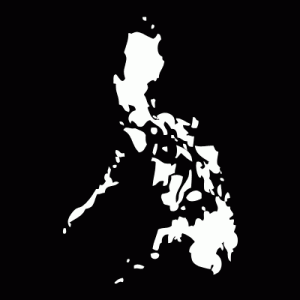 And then finally on November 17, I started seeing links related to prophecies of blessing and judgment. The first one I saw was coming from Cindy Jacobs (https://vimeo.com/79517440). She was prophesying about a great transformation and recovery.
And then finally on November 17, I started seeing links related to prophecies of blessing and judgment. The first one I saw was coming from Cindy Jacobs (https://vimeo.com/79517440). She was prophesying about a great transformation and recovery.
And then the next prophecy was promoted by the Intercessors for the Philippines (https://www.copy.com/s/XqtS6PDgVRTk/Warnings%2C%20Punishments%2C%20%26%20Judgments.pdf). This was actually published last April 11. I read it and found in it a solemn warning that unless churches in the Philippines would repent of our sins, and intercede for the country, we will continually experience great disasters. Messages like this should be taken seriously and instead of dismissing them immediately as heretical, we ought to examine ourselves whether this message really describe the life of the Philippine Church or not.
That is a very long overview of Yolanda that I think most of you are familiar.
General Lessons from the Lives of Joseph and Job
I know that Yolanda is a literal storm that devastated our nation. In reading the life of both Joseph and Job, we will not encounter a literal storm. Instead, we are reminded that these men of God suffered the strongest storms in their lives. The question is, how did they respond? And what is the lesson for you today in facing the strongest storm in your life?
In the case of Joseph, betrayal of his brothers was his “greatest storm.” In Job’s case, it was the lost of his children, property, and physical well-being.
Those of you who have not experienced yet trials in life of this magnitude, I consider you blessed. Don’t think that only those who have experienced great trials like this are the blessed ones. I do not know why both Joseph and Job, godly men as they were, had suffered those kinds of trials. From our perspective now, we can say that in the case of Joseph, that is God’s way of preparing him for a great service, to become the governor of Egypt. And in the case of Job, it is still unclear to me why he had to suffer so much. Even the double blessing that he had during the latter part of his life, to me, is not a sufficient justification for all his sufferings.
A Synopsis of Joseph’s Life
Let us review first the the life of Joseph. As we all know, Joseph was Jacob’s favorite son. Jacob loved him so much, gave him a special garment, and made him the reporter of his brothers’ performance. Joseph also had a dream when he was 17. As a result, his brothers hated him.
His brothers plotted to kill him, but due to the intervention of Reuben, the eldest among them, Joseph was thrown into the cistern instead. Later, they changed their mind due to Judah’s suggestions and sold Joseph to the Ishmaelites, who also sold Joseph to Potiphar, one of Pharaoh’s officials.
While in the house of Potiphar, God blessed Joseph. When Potiphar saw how God blessed Joseph, the official entrusted to his slave all his property.
However, Potiphar’s wife took notice of Joseph and seduced him, but Joseph refused her out of fear of God. Joseph’s paid a great price for his refusal. He ended up in prison.
While in prison, God was with Joseph until he met the cupbearer and the baker. It was through the cupbearer that Joseph was brought into the presence of Pharaoh. Joseph interpreted Pharaoh’s dream that finally resulted into his appointment as the governor of Egypt. It took 13 years before Joseph’s dream had been fulfilled.
Then the famine started to spread, and Joseph’s brothers went down to Egypt. This happened twice. During their second return, Joseph saw his brother Benjamin. Read how Genesis 43:30-31 described Joseph’s feeling despite of his success, “Deeply moved at the sight of his brother, Joseph hurried out and looked for a place to weep. He went into his private room and wept there. After he had washed his face, he came out and, controlling himself . . .” So it was not easy for Joseph to forget the strongest storm that happened in his life. Even after 13 years, having been promoted into a high political position, and raised a family in Egypt, he still struggled with his past.
And then we read in Genesis 45: 1-2 when Joseph finally revealed his real identity before his brothers. Joseph could no longer control himself before all his attendants, and he cried out . . . And he wept so loudly that the Egyptians heard him, and Pharaoh’s household heard about it.” Joseph is a real man. He is not invincible from life’s pains. He suffered a lot.
Central Questions
How did Joseph face the strongest storm in his life? What lessons can you learn from Joseph’s response? How should you respond when you are facing the strongest storm in your life?
I. WHEN YOU FACE THE STRONGEST STORM IN YOUR LIFE, IT IS BUT NATURAL TO STRUGGLE EMOTIONALLY.
One thing I don’t like about counselors is the tendency to minimize the pain of their counselees. They assume too much that they are well-acquainted with human suffering. As a result of such lack of knowledge, they gave insensitive advice. Instead of becoming channels of healing, they add all the more to the feeling of isolation that the sufferer is facing.
In the aftermath of Yolanda, more than material relief is needed. There are groups who are calling for counselors to debrief victims from their trauma. It is difficult to find counselors who can show empathy.
In the case of Joseph, we read that he is a very spiritual man. He is God-fearing. We saw it how he resisted the temptation of Potiphar’s wife. But despite of his spiritually, he is not immune from emotional struggle. His pain was real, and it was very difficult.
Joseph struggled emotionally to see his family, particularly his father and his brother, Benjamin. From a human point of view, losing a family is the hardest blow a person can suffer in this life. Losing your wife and your children is the hardest trial a man can face in this life. God does not deny such emotional struggle. It is part of our humanity.
Offering solution by ignoring emotional struggle leads to a superficial healing for it undermines the reality of life, of pain and suffering. One must take pain seriously through patient listening and empathy. And from there, you can show the way to healing available through the death and resurrection of Jesus, the gospel, which is the power of God.
II. WHEN YOU FACE THE STRONGEST STORM IN YOUR LIFE, YOU HAVE TO ENDURE YOUR EMOTIONAL STRUGGLE, AND YOU MUST DO YOUR BEST TO CONTROL YOURSELF.
It is one thing to accept the reality of an emotional struggle in facing a difficult trial in life, and it is also a different thing to endure such struggle. I think many can accept the reality of emotional struggle, but only very few can endure it.
In the case of Joseph, he endured his emotional struggle for 13 years. Even when he saw his brother Benjamin after longing for 13 years, he tried his best to control himself. But of course even in his case there was also a certain limit that he could bear with his emotional struggle. So after waiting for so long, finally Joseph could no longer control himself, and he wept so loudly. The loneliness, the longing for his family that he contained for so many years finally burst out. Joseph was a normal person just like any of us. He could only endure so much. He is not God.
In our study of biblical characters like Joseph, Job, David, and others, there is a tendency for us to divinize them, treating them as if they are perfect, almost superhuman, and stranger to human suffering. Such reading of the Bible is wrong. If there is anything that we have to exalt in reading the Bible, it is nothing but the grace of God.
III. WHEN YOU FACE THE STRONGEST STORM IN YOUR LIFE, FIND YOUR COMFORT IN THE PRESENCE OF GOD ALONE
The only reason why Joseph endured that long is because of God’s presence. God was with with Him. He received comfort in the midst of his emotional struggle through the presence of God. If not for God’s presence, Joseph being a natural man, could find no way to endure such pain. The only thing that sustained Joseph throughout those lonely 13 years was the presence of God. God was with him always, when he was in the house of Potiphar, when he was in prison, and when he was promoted as the governor of Egypt. God was with him both in pain and in honor.
The people of Samar and Leyte have suffered so much due to the fury of super typhoon Yolanda. They lost their loved ones, their houses, and all their belongings. Many of them were traumatized. They could not believe that the devastation is for real. It is like their greatest nightmare becoming a reality. And what will sustain them in their misery? Who will sustain them? Is relief enough to comfort. Is the coverage of media and the visit of government officials able to relieve their pain? I don’t think so. There is something in pain that only a fellow sufferer can understand.
I happened to read a story of an OFW who lost all of his relatives in Leyte. They are 20 of them. How will you comfort such man? How can you bring genuine comfort to people who have suffered the greatest storm in their lives? We can’t. Only God can. When and how, we don’t know. The only thing we can do is listen, grieve, and speak appropriate words when the sufferer is prepared to listen. Beyond that, I do not know of any other remedy.
A sufferer can either turn to God or turn away from God. His heart can be hardened all the more or humbled. Not all who suffer turn to God. There are those who deny, hate, and curse God. This cause will cause deeper suffering for genuine healing is found only in God and in His word.
Conclusion:
When you face the greatest storm in life, it is but natural for you to struggle emotionally, and endure it for some time. But ultimately, your healing can only be found in the presence of God.
I remember the Payatas Dumpsite Tragedy in 2000. I was pastoring a small church there in Payatas when that tragedy happened. According to long time settlers in that barangay, ore than 2,000 people died in that tragedy, when the mountain of garbage collapsed on hundreds of houses.
I observe that after the tragedy, the victims do not care about the relief goods. They are in deep grief. Other people took advantage of their situation and benefit from their misfortune. It is only after several months that the real victims realized that they need reliefs especially those coming from foreign aids, but it was almost too late, and only crumbs were left.
I do not know if something will change now with the ongoing relief operation in the aftermath of Yolanda. Yes, we need foreign aid, but we are not naive to believe that those aid will be free from self-serving and greedy people particularly the government bureaucrats. I am glad to see that private initiatives are taking place, and even local churches are doing their best to aid the victims. And for all of these, I praise God.

